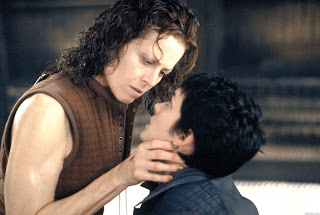
Life is filled with all kinds of personal hurts: white lies, broken promises, even physical injuries. Most of the wounds we experience, though, are not unforgivable. We put them behind us and go on. Unforgivable injuries, however, cannot simply be put aside or ignored. They are different from burglaries, muggings, and other attacks by unknown assailants. These damage people, but since they do not involve love, they do not force people to reevaluate their assumptions about love and being loved.
Unforgivable injuries, on the other hand, permanently change the injured parties. There are five major characteristics that make an injury unforgivable:
1. Unforgivable injuries start with a singular event that signals a betrayal.
2. They are initiated by intimate injurers.
3. They are moral wounds; they shatter a person's concept of morality.
4. They assault a person's most fundamental belief systems.
5. They are deeply personal and therefore relative from wounded person to wounded person.
THE AFTERMATH OF INJURY
In the immediate wake of an unforgivable injury, enormous emotional upheaval takes place. There is shock, confusion, disbelief, rage, helplessness, and a kind of terrible impotence. Many wounded people also experience physical disturbance--headaches, sleeplessness, weight loss. Some also drink heavily. The period can last for weeks and even months; but it is entirely normal. Some initial reactions include:
SELF-BLAME: In the aftermath period, injured people are searching for reason. "How could this have happened?" or "What could I have done to prevent this?" are common questions. There is an important, almost universal reason for this reaction: It allows a wounded person to make at least some sense out of a world turned upside-down.
Self-blame gives people hope, because they believe that if they can change themselves, they may be able to prevent the full loss of an unforgivable injury. It also allows them to believe that if they have control over themselves, they can still have some control over the events in their lives.
RAGE: When our beliefs are taken from us, we are filled with wrath. Some people express rage openly and externally; others turn it on themselves.
LOVE: The love fragmented by the wound of an unforgivable injury takes an odd configuration. Permeated with hate, sorrow, guilt, and impotent pain, it still struggles to restore itself into a whole; to survive.
Almost all wounded people continue to love their injurers. Love is, after all, not only a feeling but a habit. For marriage partners, love is supposed to endure beyond times of trouble. Losing your ideals and habits is equivalent to losing yourself. It is hard enough to have been hurt, to have figuratively had a part of yourself blown away. But to give up the remainder of yourself-the love in your heart-is like losing everything. So when people let go of love, they have to feel the full force of an unforgivable injury. They have to grieve over the loss of a history with another person and for a future that will not be. They also have to grieve over the parts of themselves that are gone.
Unforgivable injuries, on the other hand, permanently change the injured parties. There are five major characteristics that make an injury unforgivable:
1. Unforgivable injuries start with a singular event that signals a betrayal.
2. They are initiated by intimate injurers.
3. They are moral wounds; they shatter a person's concept of morality.
4. They assault a person's most fundamental belief systems.
5. They are deeply personal and therefore relative from wounded person to wounded person.
THE AFTERMATH OF INJURY
In the immediate wake of an unforgivable injury, enormous emotional upheaval takes place. There is shock, confusion, disbelief, rage, helplessness, and a kind of terrible impotence. Many wounded people also experience physical disturbance--headaches, sleeplessness, weight loss. Some also drink heavily. The period can last for weeks and even months; but it is entirely normal. Some initial reactions include:
SELF-BLAME: In the aftermath period, injured people are searching for reason. "How could this have happened?" or "What could I have done to prevent this?" are common questions. There is an important, almost universal reason for this reaction: It allows a wounded person to make at least some sense out of a world turned upside-down.
Self-blame gives people hope, because they believe that if they can change themselves, they may be able to prevent the full loss of an unforgivable injury. It also allows them to believe that if they have control over themselves, they can still have some control over the events in their lives.
RAGE: When our beliefs are taken from us, we are filled with wrath. Some people express rage openly and externally; others turn it on themselves.
LOVE: The love fragmented by the wound of an unforgivable injury takes an odd configuration. Permeated with hate, sorrow, guilt, and impotent pain, it still struggles to restore itself into a whole; to survive.
Almost all wounded people continue to love their injurers. Love is, after all, not only a feeling but a habit. For marriage partners, love is supposed to endure beyond times of trouble. Losing your ideals and habits is equivalent to losing yourself. It is hard enough to have been hurt, to have figuratively had a part of yourself blown away. But to give up the remainder of yourself-the love in your heart-is like losing everything. So when people let go of love, they have to feel the full force of an unforgivable injury. They have to grieve over the loss of a history with another person and for a future that will not be. They also have to grieve over the parts of themselves that are gone.
An article from Yahoo!








No comments:
Post a Comment